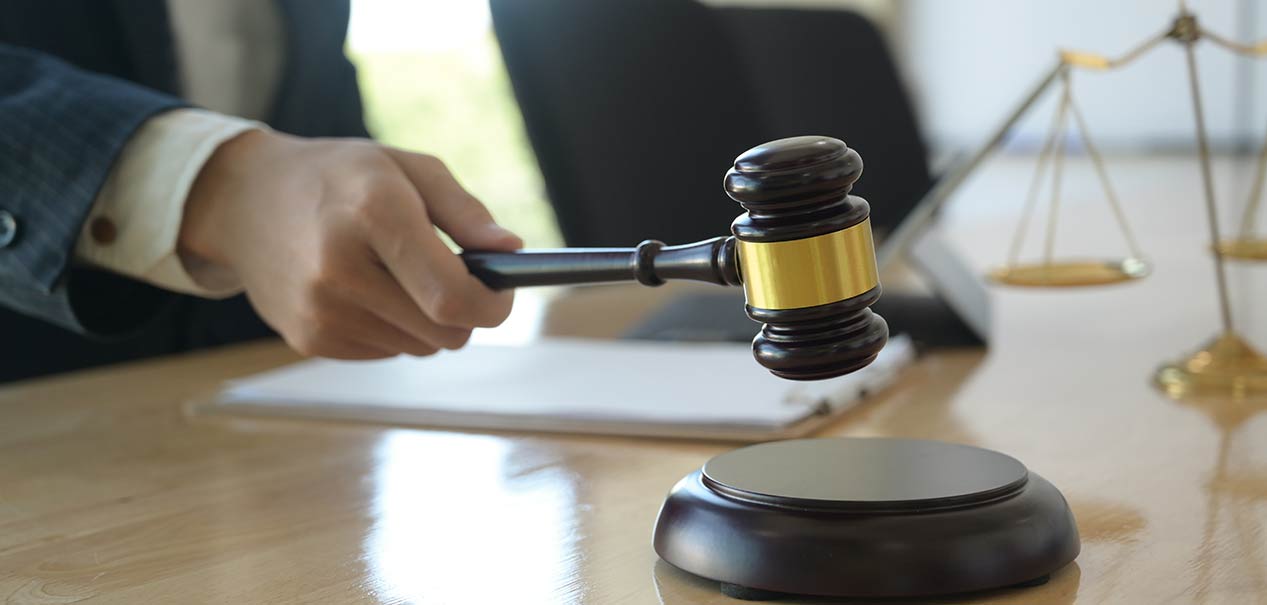A Preliminary Exam is also known as a Probable Cause Hearing
A Preliminary Examination is a Right of the Defendant. An expert criminal defense attorney can use this hearing to turn the tables on the prosecution.

A person charged with a felony or a high misdemeanor (a misdemeanor punishable by more than one year) has the right to have a preliminary examination at the district court level within 21 days of their arrest.
The 21-day limitation is almost always waived with retained counsel to give the lawyer time to prepare the case and/or seek a district court resolution (a plea to a misdemeanor or civil infraction). With an expert’s perspective on preliminary examinations, a criminal defense lawyer can turn the tables on the prosecution.
At a preliminary exam (also known as a “probable cause” hearing), the prosecution has to show (1) that a crime has probably occurred and (2) it is more likely than not that the person charged is the person who likely committed the offense. Unlike the “beyond all reasonable doubt standard” at trial, the probable cause standard at this stage is very low. Most cases are bound over to the circuit court. Courts generally hold that the evidence presented at the preliminary examination must be viewed “in the light most favorable to the prosecution.” Issues of credibility or conflicting evidence are usually resolved in favor of the prosecution for probable cause purposes.
A Preliminary Examination is Not a Trial
The district court judge assigned to the case will decide whether the prosecution has met its burden of proof at a preliminary examination. The prosecution presents its case first. The prosecution does not have to, and will likely not, present all of their evidence. The prosecution can present any evidence they choose so long as the probable cause standard is met.
The defendant has the right to cross-examine prosecution witnesses and, if the defense chooses, can present evidence and witnesses of their own. The defendant virtually never presents defense witnesses and evidence. A defendant testifying at a preliminary examination is seldom done. There are various reasons the defense does not present evidence at the preliminary examination. Even in the best circumstances, the judge will find that the defense witnesses or evidence creates a “question of fact” for the jury to decide. By presenting evidence with little hope of it having an impact, the defendant unnecessarily reveals defense-friendly evidence or defense strategy with nothing gained. There are some limited cases where defense evidence or witnesses are so compelling and overwhelming that presenting the evidence at the
After all testimony and evidence have been presented and both the prosecution and the defense rest, arguments are made regarding whether the case should be “bound over” to the circuit court. The prosecution will argue that they have met their burden of proof and ask the judge to bind the case to the circuit court on all charges contained within the complaint. They will frequently ask for additional charges if the evidence presented would justify new charges. The defense usually argues that the prosecution has not met its burden and will ask the judge to dismiss one or more of the charges or, in the alternative, reduce one or more of the charges to a misdemeanor. The prosecution gets the first and last argument because they have the burden of proof. There are cases where the judge will increase, decrease or even add additional charges on his own (
Is there a difference between a Preliminary Examination and a Probable Cause Conference (PCC)?
Yes. Before a preliminary examination, the parties must meet to discuss the case at a Probable Cause Conference (PCC). This conference consists of a discussion between the prosecution and the defense regarding the status of the case. They also determine areas of agreement and disagreement and decide whether either party is demanding an examination. If both parties have decided to waive the exam, it can be waived at the PCC. If either party needs more time, which is extremely common, the case is scheduled for a preliminary examination within 21 days of the arraignment (longer if the parties waive their right to have the exam within 21 days). In many cases, the prosecutor provides a copy of the police report to the defense lawyer at the PCC and determines whether they must provide additional discovery to the defense.
What if the defendant waives the exam but the prosecution demands one?
The right to a preliminary exam belongs to the criminal defendant and the prosecution. The court will proceed with the preliminary examination unless both the prosecution and the defendant decide to waive the exam (voluntarily give up the right to a preliminary examination). A preliminary examination can take minutes or days, depending on the volume of evidence and the seriousness of the charges. Deciding whether to waive or hold the preliminary examination is complex and should not be taken lightly.
Should the Defendant Waive or Hold the Preliminary Examination?
This decision is exceedingly complicated. There are innumerable reasons to hold or waive the preliminary examination. Every case is different, and the defense lawyer and their client must decide on a case-by-case basis. No strategy fits every case. Holding or waiving a preliminary examination might be helpful, hurtful, or not impact the case. This decision is crucial because there is rarely an opportunity for a second bite at the apple.

A Defendant May Want to Waive Their Preliminary Examination in the Following Circumstances:
- They intend to plead guilty. If the prosecution’s case is strong and the defendant intends to plead guilty or no contest, waiving the preliminary examination will save time, court resources, and money. Under these circumstances, holding the preliminary examination can only cause problems because it will create a new record of the offense that the judge and circuit court prosecutors can examine. Also, it can inflame a victim who will later be asked to make a “victim’s impact statement” or cause an otherwise cooperative prosecutor to turn uncooperative.
- If the defendant believes that the witnesses against him are likely to not show up at trial or that they may refuse to testify at trial, holding a preliminary examination can have a disastrous impact on the defense. If the court rules that the prosecution witness is not available at trial and there was a preliminary examination, the judge will likely find that the preliminary examination transcript (the record of the witness’s testimony) is admissible at trial instead of the witness’s live testimony. In other words, a case that may be dismissed at trial will be able to go forward because the transcript can be used as evidence by the prosecution.
- If the testimony is likely to bring out facts that could lead to the defendant being charged with either additional crimes or a worse crime than the current one. The judge at the preliminary examination can add new charges or increase the severity of the charges. If the prosecutor who issued the complaint failed to include prospective felony or misdemeanor charges, the court could add additional charges on its own or at the prosecutor’s request.
- If the defendant intends to plead guilty anyway, testimony admitted at the preliminary examination can increase the defendant’s sentencing guidelines. There are guidelines that the sentencing judge uses to determine if the defendant should go to jail and, if so, how long the jail or prison sentence should be. The guidelines are determined based on the defendant’s criminal history and the facts of the case. There may be facts that would justify higher guidelines that are not contained in the police report and would only be brought to light because of the testimony admitted at the preliminary examination.
- Holding a preliminary examination may sabotage a good deal if a plea bargain or sentence bargain is the defense strategy. Occasionally, prosecutors will agree to a favorable deal at sentencing if the defendant waives their right to a preliminary examination. Even if the prosecutor does not make a deal for a waiver, they will likely give some positive credit towards a resolution in circuit court. When requests are made for a sentence agreement in the circuit court, judges frequently ask for the prosecutor’s opinion. Whether the preliminary examination was held and what evidence was produced will likely impact how the prosecutor responds.

A Defendant May Want to Hold His Preliminary Examination in the Following Circumstances:
- If the prosecution’s case is weak, the preliminary examination can be used to expose weaknesses. Even if the preliminary examination does not result in a dismissal of the case, bringing light to the weaknesses in the prosecution’s evidence may make the prosecution more likely to engage in favorable plea negotiations. If highly mitigating evidence is produced, the testimony or evidence may make a circuit judge more inclined to impose a more lenient sentence. Of course, the risk in holding the examination is that the evidence or testimony may have the opposite effect. Holding a preliminary examination for this purpose should be approached very cautiously.
- The preliminary exam will allow testimony to be placed on the record, which the parties can use to impeach a witness at trial. This strategy should be used when the defense believes that a particular witness has credibility problems or is likely to change their testimony or lie at trial. An experienced trial lawyer can use the preliminary examination to evaluate a witness’s credibility for trial.
- The defense attorney can use the preliminary examination to determine if a pretrial motion is appropriate or to develop evidence if such a motion is planned. For example, suppose a confession is going to be introduced into evidence. In that case, the defense lawyer can use the preliminary examination to get a preview of an officer’s testimony before an evidentiary hearing.
- If the witnesses or victims are unlikely to appear at the preliminary exam, the court may dismiss or reduce one or more of the charges in the case. The prosecution will typically be given one or more adjournments of the preliminary examination to locate and subpoena any uncooperative or difficult to locate witnesses. If a witness fails to appear at the preliminary examination, the prosecutor may ask for a warrant for the witness’s arrest (called a “Material Witness Warrant“). The case would then be dismissed without prejudice and re-filed when the witness is located. Dismissal at the preliminary examination is always without prejudice, meaning temporary, and can be re-filed when the prosecution is ready to proceed.

An Experienced Criminal Defense Lawyer Can Help
The decision to hold or waive a preliminary examination is complex, and the list above is not exhaustive. An experienced criminal defense lawyer will know how to weigh the advantages and disadvantages of holding or waiving a preliminary examination and give you the best possible advice. Ultimately, the decision to hold or waive the exam must be decided by the defendant, who is free to accept or disregard the advice of his attorney. If you are represented by an attorney whose advice you trust, you should rely on that advice. If you would like additional information or discuss what options are available in your case, call LEWIS & DICKSTEIN, P.L.L.C. for a free consultation. We will take the time to speak with you, answer all of your questions, and address your concerns.
Call us today at (248) 263-6800 for a free consultation or complete an online Request for Assistance Form. We will contact you promptly and find a way to help you.













